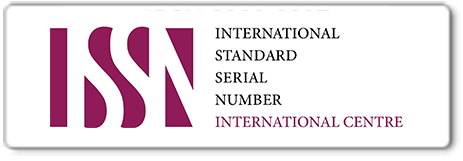The Effect of the Think Talk Write (TTW) Learning Model on the Ability to Write Short Stories in Grade VII Middle School Students at Cenderamata, Medan City
DOI:
https://doi.org/10.59086/ijest.v2i3.326Keywords:
learning model, think talk write (TTW), writing abilityAbstract
References
Arikunto, Suharsimi. (2013). Prosedur Penelitian: Suatu Pendekatan Praktik. Jakarta: Rineka Cipta.
Alfianika, Ninit. (2016). Pengaruh Penggunaan Teknik Think Talk Write (TTW) Terhadap Kemampuan Menulis Cerpen Siswa Kelas X SMA Negeri 1 Painan. Jurnal Penelitian Bahasa dan Sastra Indonesia, Vol.3, No.1.
Adawiah, S. R., Pertiwi, L. L., Sukawati, S., & Firmansyah, D. (2018). Pembelajaran Menulis Puisi dengan Teknik Onomatope di MA Tanjungjaya. Parole (Jurnal Pendidikan Bahasa dan Sastra Indonesia), 1(6), 897-904.
Dalman. (2018). Keterampilan Menulis. Depok: Rajawali Pers.
Haryanto, D. P. (2018). Inovasi Pembelajaran. Perspektif Ilmu Pendidikan, 16(VIII), 102– 119. https://doi.org/10.21009/pip.162.11
Husda, Azizah. (2022). Two stay two stray techniques to improve junior high school students’ English vocabulary mastery. English Teaching and Linguistics Journal (ETLiJ)
Janah, S., Wikanengsih, W., & San Fauziya, D. (2018). Pengaruh Model Pembelajaran PJBL (Project Based Learning) Terhadap Kemampuan Menulis Teks Biografi Kelas X Sekolah Menengah Kejuruan Negeri 2 Karawang Tahun Ajaran 2017/2018. Parole (Jurnal Pendidikan Bahasa dan Sastra Indonesia), 1(4), 637-644.
Maimunah, Siti Annijat. (2017). Buku Pintar Bahasa Indonesia. Jakarta: Prestasi Pustaka. Margono.
Munirah. (2015). Pengembangan Menulis Paragraf. Yogyakarta: Penerbit Deepublish. Semi, M. Atar.
(2017). Dasar-dasar Keterampilan Menulis. Bandung: Angkasa Bandung. Siswanto, Wahyudi & Dewi
Ariani. (2016). Model Pembelajaran Menulis Cerita. Bandung
Sugiyono. (2018). Metode Penelitian Pendidikan Pendekatan Kuantitatif, Kualitatif dan R & D. Bandung: Alfabeta.
Downloads
Published
How to Cite
Issue
Section
License
Copyright (c) 2023 Ribka Mastiur Simangunsong, Elisa Putri Ayu Simanungkalit, Yohana Evaulina Matondang, Madina Madina

This work is licensed under a Creative Commons Attribution 4.0 International License.
International Journal Of Economics Social And Technology under the terms of a Creative Commons Attribution 4.0 International License / CC BY 4.0 This license permits anyone to copy and redistribute this material in any form or format, compose, modify, and make derivative works of this material for any purpose, including commercial purposes, so long as they include credit to the Author of the original work.


















